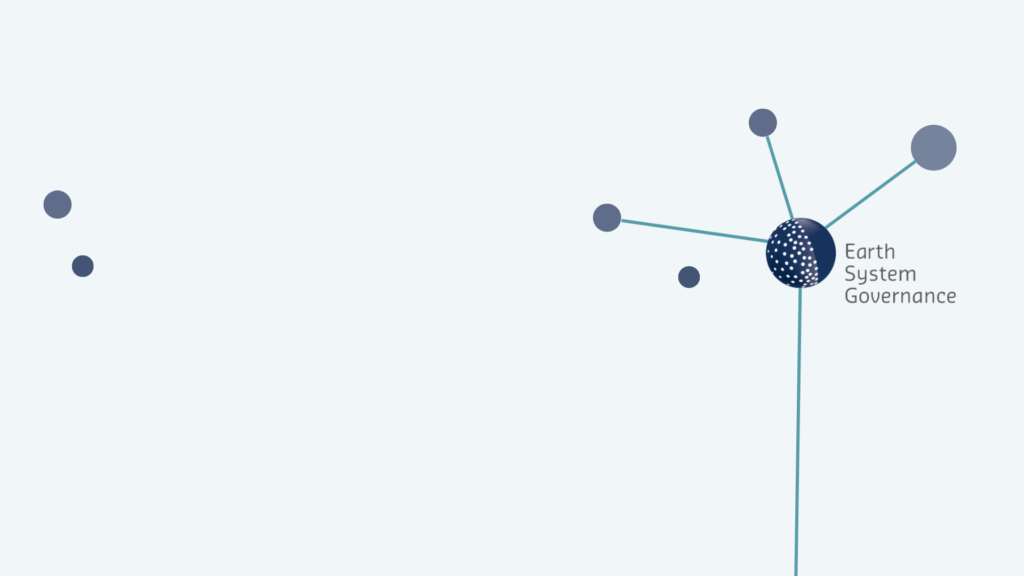
Science-policy interfaces for transformative change?
Insights from our innovative session at the Earth System Governance conference (24 Oct)
By: Arlette van den Berg, Timo Maas, and Machteld Schoolenberg.
Global calls for transformative change in the face of urgent sustainability challenges are growing increasingly loud across science, policy and society. Transformations are inherently political, and they should be treated as such by researchers, practitioners and policymakers (Blythe et al. 2018; Scoones et al. 2020). As a science-policy organization aspiring to contribute to transformative change, we are interested in the implications of this for our at PBL Netherlands Environmental Assessment Agency. Because, arguably, for science-policy organizations to become transformative, they also need to transform their own way of working (Maas, 2023).
In an ‘innovative session’, organized last 24 October as part of the Earth System Governance conference at Radboud University Nijmegen, we reflected upon institutional barriers and ways forward for institutions in the science-policy interface to become transformative. In this blog, we’re sharing some of our key results with you, with special thanks to discussants Gijs Diercks (DRIFT), Josie Chambers (UU), and Roberto Rocco (TU Delft).
Add perspective to change
Most people like habits, structures and their comfort zone. Transformative change is about the opposite. Conflict and uncertainty are part of the deal, as is giving things up. To make the aim of change more tangible, envisioning alternative futures can help, e.g. through science and art. Instead of an unknown ‘black hole’, concrete visions of changed futures show a concrete alternative that can both be resisted or desired. In that way they can also help as a tool to discuss and explicate the different worldviews underlying those futures.
Embrace the politics of research
Us researchers love to talk about ‘the content’, i.e. the scientific facts and newest insights in our disciplines. However, the production and consumption of knowledge does not occur in a political vacuum. It matters who asks the questions, who uses the outcomes, which methods are being used, who is being served with specific research. Transformative change is all about challenging the status quo, meaning these are important questions for commercial and non-commercial knowledge producers alike. Importantly, this also includes universities’ role in training our future researchers, consultants, public servants, etc..
You’re not alone
Transformative change requires a lot of different knowledge, varying from ‘what’s happening on the ground’ in specific regions, to systemic dynamics. Luckily not all knowledge production needs to rest on the shoulders of scientists. Together with other knowledge producers – such as consultancies and practitioners – we can bridge the systemic with the specific and the abstract with the hands-on. Of course, building up relationships is hard work. In the light of the politics mentioned above, it is important to be critical with whom you’re entering a collaboration. And as for working with communities – building up trust takes time. Often more time than usually is foreseen in scientific or policy projects. But taking time will also lead to more in-depth discussions and therefore better results. As an old saying goes: alone you might be faster, but together you’re moving further.
Looking onward
The session proved to be a very interesting exchange of thoughts and experiences with very similar challenges. We learnt that our contribution to transformative change depends on a shift away from being a supplier of ‘high status/authoritative’ Science. Instead, PBL should aim to becoming a supporter of open-ended learning with the people and organizations who are/could be doing transformative change on the ground. A key take-away that is hopefully recognizable for other organizations as well.
PBL Netherlands Environmental Assessment Agency was established in 2008 when the Netherlands Institute for Spatial Research (RPB) merged with the Netherlands Environmental Assessment Agency (MNP).
PBL Netherlands Environmental Assessment Agency is the national institute for strategic policy analysis in the fields of the environment, nature and spatial planning. The institute contributes to improving the quality of political and administrative decision-making by conducting outlook studies, analyses and evaluations in which an integrated approach is considered paramount


